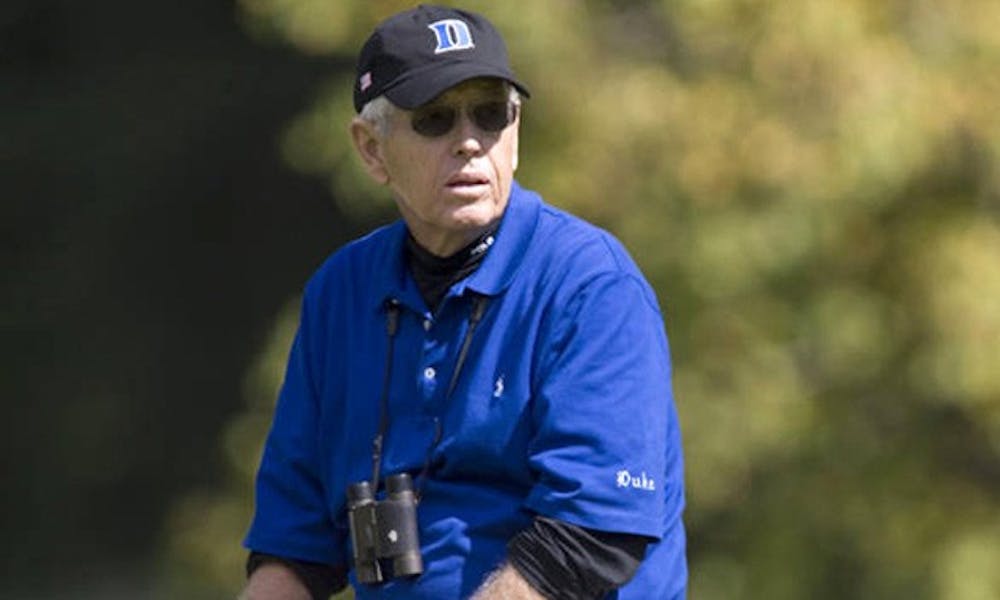It would be nearly impossible to find somebody who met former Duke men’s golf coach Rod Myers without coming away having learned something—whether it was about golf, life or something in between.
Myers, who was head coach of the team for 34 years beginning in 1974, passed away on March 30, 2007 after a battle with an acute form of leukemia. Duke is now taking the steps to honor this man who had such a profound influence on the program and those around him.
The first step in this begins this Sunday and finishes Monday, when the team hosts the inaugural Rod Myers Invitational at the Duke University Golf Club. This follows a 37-year tradition of the Blue Devils hosting an annual golf tournament.
Deputy Director of Athletics Chris Kennedy emphasized the importance of Duke commemorating his legacy.
“I could say without any reservation he was the most revered, nicest head coach ever at Duke,” Kennedy, who worked with Myers for over 30 years, said. “He’s one of the best people I’ve ever known and I think you look for ways to try and remember people like that.”
Colleagues and former players alike similarly revere the storied Blue Devil coach.
“We really looked up to him and he focused on making each of us better people, so that you wanted to give everything for him,” Mike Castleforte, who played on the team under Myers from 2002-2004, said. “You wanted to win so badly for coach because of the way he conducted himself and treated us.”
In addition to naming the tournament after him, the school is naming the newly renovated golf facility the Rod Myers Training Center. The still-under-construction facility, to be used by both the men’s and women’s teams, includes new target greens, new bunkers and a laser-level teeing ground.
“Our golfers every day will see Rod Myers’s name,” Kennedy said. “The ones who didn’t know him, and we’re getting to the point now that there’s [no players] here who knew him personally, will still learn about him.”
These two tributes to his name can perhaps symbolize the dual importance he had on the community, both on and off the course. On the course, Myers established Duke as a perennial contender and won an ACC championship towards the end of his tenure in 2005. He left current coach Jamie Green with a strong foundation to build on into the future.
“We expect the highest level from our players and I’m sure that was the same for Coach Myers,” Green said.
Off the field, Myers focused on developing his players’ character and running a program that would represent Duke in the best of lights.
“His legacy reaches to all his former players who he raised and instilled values in while at Duke,” Castleforte said. “He was focused on building us in golf and as people.”
With this in mind, Duke will look to win not only for the sake of winning but also to honor its former coach’s legacy. If the past is any indication, they should have a decent shot. The Blue Devils have won nine of the 37 times they have hosted, including four of the last six.
“I think more than anything, having the community, university, Nancy Myers and the family be excited about hosting a tournament in Rod’s memory, that’s the greatest thing of all,” Green said.
Ultimately, the athletic office hopes that memorializing Myers’ name will ensure that his legacy of success—both on and off the course—will not be forgotten.
“If you make a list [of] the things you want in a coach, you’re describing Rod Myers,” Kennedy said. “The kind of program he established, the way he treated people, you want to keep that alive.”
Get The Chronicle straight to your inbox
Signup for our weekly newsletter. Cancel at any time.

